Trump answers to Putin
By Elisabeth Eaves | July 16, 2018
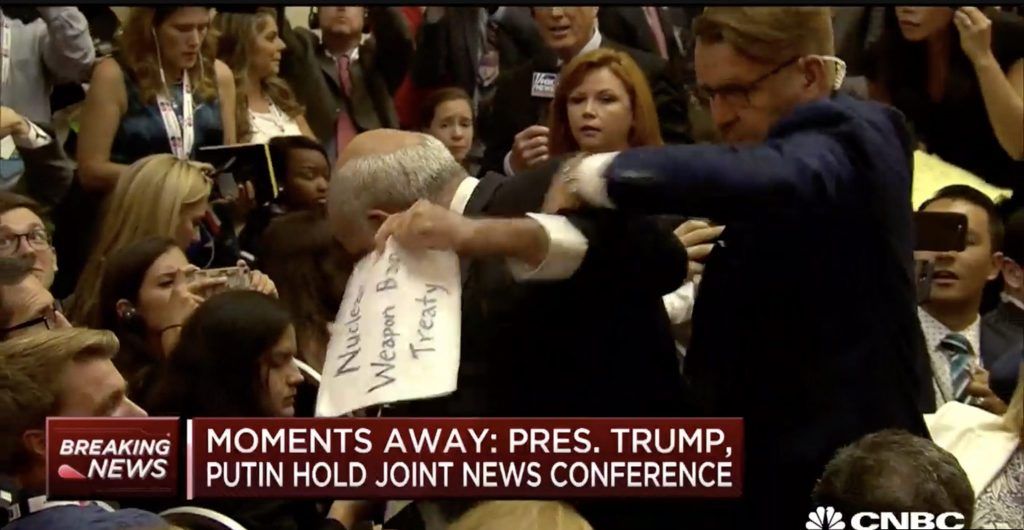 Sam Husseini is forcibly removed from the Trump-Putin press conference for holding up a sign reading "Nuclear Weapon Ban Treaty."
Sam Husseini is forcibly removed from the Trump-Putin press conference for holding up a sign reading "Nuclear Weapon Ban Treaty."
A year and a half into his presidency, you would think US President Donald Trump no longer had the power to flabbergast, but he took his talent to new heights on Monday during a press conference following his summit with Russian President Vladimir Putin. Former CIA director John Brennan called Trump’s performance “nothing short of treasonous.” Senator John McCain, the Arizona Republican, called it “one of the most disgraceful performances by an American president in memory.” Fox News anchor Abby Huntsman, who is the daughter of the US ambassador to Russia, tweeted, “No negotiation is worth throwing your own people and country under the bus.” James Fallows, correspondent for The Atlantic, wrote, “never before have I seen an American president consistently, repeatedly, publicly, and shockingly advance the interests of another country over those of his own government and people.”
It would be easy to go on in this vein, quoting voices from across the American political spectrum, but you get the idea. Back when he was campaigning for the job, this president bragged that he “could stand in the middle of Fifth Avenue and shoot somebody and I wouldn’t lose any voters.” That proposition seemed to hold water until Monday. Trump had survived the first stop of his 2018 Nuclear-Armed-Autocrats Listening Tour, his meeting with North Korean leader Kim Jong-un on June 12. There, Trump granted significant concessions to Kim for no particular reason, and it somehow didn’t turn his own party, which has historically made much of its own hawkishness, against him.
So what did Trump do now that has top Republicans in Congress breaking with him? Over the last week he insulted his way across Western Europe, sowing discord with NATO allies. No surprise there, but it fulfills Putin’s wish to see his adversaries weakened and divided. On Monday, Trump cooled his heels waiting for Putin to show up an hour late to their Helsinki meeting, a power move if there ever was one. Trump met with Putin, first privately, then with other officials. Then they held their press conference. They announced no new measures on nuclear disarmament, as some experts hoped they would. Nor anything on the recent murder of a British citizen with a Russian-made chemical weapon, nor on Russia’s support for Syrian leader Bashar Assad and his chemical weapons. Nobody thought the Nuclear Weapon Ban Treaty would come up, given that neither of the world’s two largest nuclear powers have any interest in signing it, but it did in a roundabout way: Sam Husseini, who covered the Helsinki summit as an op-ed writer for The Nation, held up a sign that read, in its entirety, “Nuclear Weapon Ban Treaty.” That may sound more like a compound noun than a protest, but Russian authorities deemed the sign a “malicious item” and security guards forcibly removed the white-haired journalist.
Trump and Putin did get to one hotly anticipated topic, cyberwar, but not in a way that many people outside of Russia found reassuring.
To back up a bit: On Friday, the US Justice Department charged 12 Russian intelligence officers with hacking the computers of Democratic party officials during the 2016 US presidential election. It was the latest outcome of the FBI investigation into the hacking, which was intended to influence the election that brought Trump to power. The FBI, the CIA, the rest of the US intelligence community, and intelligence agencies abroad have all concluded that Russia hacked the 2016 US election. Russia says it did no such thing, a denial Putin reiterated on Monday.
At the Helsinki press conference, a reporter asked Trump who he believed: His own country’s intelligence services, or the Russian president? Trump replied, “President Putin says it’s not Russia. I don’t see any reason why it would be.” In other words, he believes Putin, or as the BBC headline had it, “Trump sides with Russia against FBI.”
But Trump went beyond just siding with Russia over his own government agencies. Before the summit, he tweeted that US “stupidity” and “foolishness” were responsible for the decline in US-Russia relations. Then during the press conference, as Mark Landler writes in the New York Times, “He condemned the Justice Department’s investigation of his campaign’s ties to Russia as a ‘disaster for our country.’ He suggested that the FBI deliberately mishandled its investigation of Russia’s hacking of the Democratic National Committee. And he labeled an FBI agent who testified about that investigation before Congress as a ‘disgrace to our country.’”
For anyone old enough to have been politically aware by the 1980s, it’s hard to get past the sheer weirdness of it all. Republican presidents from Dwight Eisenhower through Ronald Reagan vowed to defend US interests against Russian ones, while—generally speaking—American leftists were more likely to extend olive branches. Now old lefties are acknowledging that some foreign governments, like ones that undermine your elections, perhaps should be regarded as enemies after all, while old righties are in the awkward position of defending a Russian leader with authoritarian tendencies who still has nuclear weapons pointed at the United States.
Say what you will about Putin, but he at least seems to act in what he believes is his country’s interest. The same can’t be said of the US president. Putin has a clear-cut foreign policy goal: security for Russia, as Fiona Hill—now part of the National Security Council—wrote for the Bulletin in 2016.
Trump’s foreign policy goals for his country are not at all clear. What does he actually want? Hill offers a vision:
“There are no significant checks and balances on his presidential power. There is no larger institutional arrangement … standing behind him. The … presidency and the … constitution are essentially fused, with each guaranteeing the other. Other state institutions … have been systematically downgraded to be little more than rubber stamps for presidential proposals.”
Only she’s not describing a hypothetical scenario, but the current rule of Vladimir Putin.
Publication Name: The Atlantic
To read what we're reading, click here
Together, we make the world safer.
The Bulletin elevates expert voices above the noise. But as an independent nonprofit organization, our operations depend on the support of readers like you. Help us continue to deliver quality journalism that holds leaders accountable. Your support of our work at any level is important. In return, we promise our coverage will be understandable, influential, vigilant, solution-oriented, and fair-minded. Together we can make a difference.
Topics: What We’re Reading


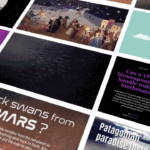
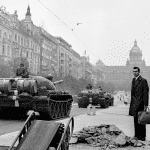
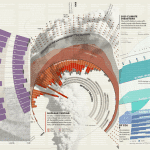

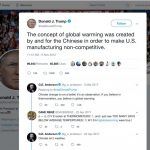









Nonsense. Trump threatens American cartoon readers by treating Putin as a ‘competitor’ rather than ‘an enemy’. I’m Canadian and almost 70 .. IMNSHO it’s about time. I won’t say ‘peace’ but I would say more peaceful, and that’s a good thing. One would think that in a site devoted to the doomsday clock there would be more respect ..
If my previous post survives moderation I should add that in all other respects I myself do not respect Trump. Opposite. On climate his behaviour is criminal, and the poor people in the US should really become aware that he’s only enriching the rich. But both NK and Russia are good things ..
So, Americans (in their remarkable simplicity) see two characters. There is the innocent, brainless Trump vs. the “shady, shadowy Russian master spy,” etc., etc. Let me know when you come back to reality.